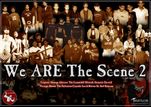"WE FALL SO THAT WE CAN PICK OURSELVES UP AGAIN"
Before I go into the topic let me admit that Batman has long been one of my favorite super heroes along with Spiderman, Wolverine, and the Phantom. So it was with great anticipation and a little trepidation (who will forget the campy Batman and Robin -- George Clooney as Batman?!!?) that I went to this new installment of the Batman franchise -
Batman Begins - from Warner Bros.
And I came away pleasantly surprised. Christopher Nolan (Memento and Insomnia) is a master storyteller in the form of non-linear story telling. Thankfully, while directing a mainstream he remains (partially) true to his roots if I may call them so.
In the movie itself the origins of Batman are traced, why he is who he is and why does he do what he does? So, we have the guilt-ridden Bruce Wayne (Christian Bale), trying to understand the criminal mind landing up in a prison in the Far East. From there he is rescued by a mysterious Ninja warrior Ducard (Liam Neeson), a member of the League of
Shadows, led by the mystical and mysterious Ra's Al Ghul (Ken Watanabe). There under Ducard's tutelage Bruce Wayne learns the ancient and powerful skills of the legendary Ninja Warrior. But soon he also learns that the league of shadows exercise justice in the only way they know - with mayhem and destruction. And that the next objective of the League is the destruction of Gotham.
So Bruce leaves the league and embarks on a journey within himself that leads him to his destiny. Ably assisted in this by his faithful butler Alfred (Michael Caine) and Lucius Fox (Morgan Freeman) and the one honest cop in Gotham Gordon (Gary Oldman) Bruce as Batman begins to exorcise Gotham city of its demons.
But enough of the plot and story, if you enjoy superhero films then my friends go watch this one. The movie is quite simply great -- Nolan successfully creates the dark, menacing atmosphere that is a must for a Batman film. Of the many reasons that the movie works for me is the depiction of Gotham, dark, rotting, violent, and corrupt. Everything in the city is rotten and corrupt - right from the police force to the judges to the businesses.
For once the batcave is precisely what a batcave is supposed to be -- dark, dripping with water, and filled with bats. Don't miss the scene where Bruce comes to terms with himself and his fears inside the batcave as thousands of bats swirl and whirl around him -- easily one of the best scenes in the movie. And thankfully the batmobile is no longer a black formula one car. It is the "tumbler," heavily armored, ferocious, a very fast, juiced up, battle tank. Of course, it comes in black.
The movie is also "contemporary" and has several nice touches. Bruce Wayne outsources the manufacture of the Batman masks to China.
I didn't find anything particularly not to like in the movie. The players are superb and they enact their roles competently. Morgan Freeman and Michael Caine enact their parts with aplomb. Katie Holmes and Rutger Hauer are wasted as is Ken Watanabe. Tom Wilkinson, Jonathon Schone play the bad guys with considerable menace. Gary Oldman does a great job (But when does he not do that), and Liam Neeson is great in the first half of the film. Christian Bale is a tremendous improvement over George Clooney's Batman. He is intense, brooding, and menacing as the Batman (unlike Clooney who seemed dressed up for a costume party).
But the film without a shadow of doubt belongs to Christopher Nolan. He again establishes himself as a master of his craft and one of the few directors to watch out for. He is always in control of his material. The sript and screenplay is taut, rarely does the film tedious.
Nolan should be applauded for dumping the gothic and campy styles of the earlier Batman movies and starting afresh. He tells the tale of Batman as it should be told. This movie is much more than an atonement for the sins committed by the earlier movies. With this movie Batman, truly begins.
The word out is that this is the first in a trilogy to be crafted by Nolan (and that all the principals have been signed for the trilogy) if it's true, bring 'em on.
by Amod Paranjape.
------------
Mandar:
I watched
Batman Begins last Saturday with my friend -- Amod. A superbly crafted movie - the kind you can expect from Chris Nolan.
I have known Amod for years and he is a fantastic writer once he puts his head to it and hence got him to write this review of Batman Begins (with a few minimal inputs from me -- Sorry, couldn't resist putting in my two bits). I do hope, Amod, someday, decides to start his own blog. The blogosphere will be richer for that.
Amod is a lawyer and runs a succesful practice under the aegis of his firm: PV Associates. He tells his lies (sorry, upholds the law of the land) in the courts of Kalyan, Ulhasnagar, and often the Mumbai High Court (and a hazaar other places like the DRT -whatever it stands for, employment tribunal, etc). The last I heard from him, he has filed a case against me for calling him a liar in a public forum. He is representing both the prosecution and the defense. And trying to convince the judge that he is not a schizophrenic.














